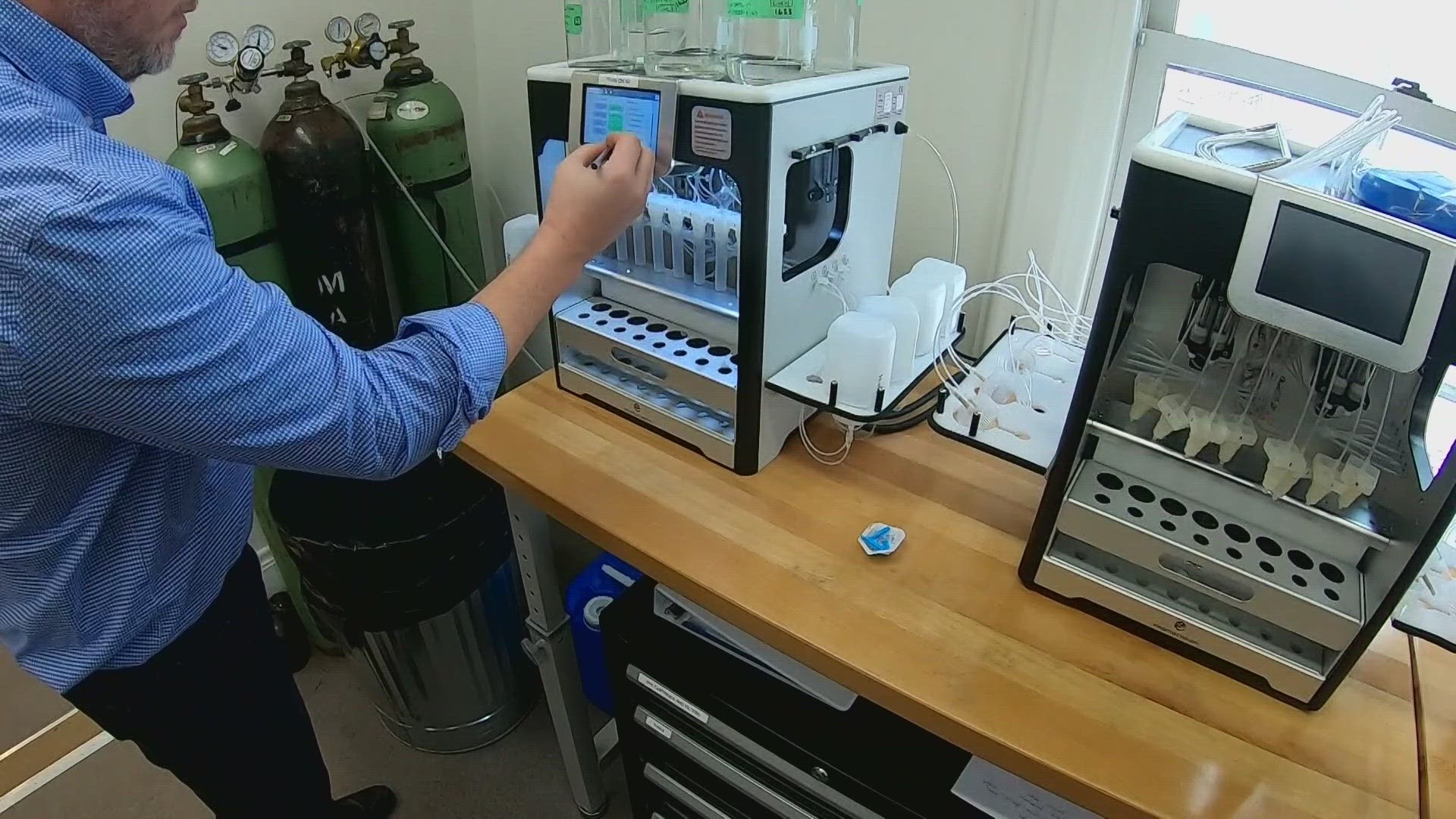NORRIDGEWOCK, Maine — The first lab in Maine licensed to test for toxic chemicals known as PFAS is expanding to meet a growing demand.
Maine Laboratories opened in Norridgewock less than a year ago, offering faster test results for property owners dealing with contamination in their drinking water.
Mainers Katie Richards, the CEO, and her husband Chris, a Ph.D. and chemistry professor, founded the company.
It was the first state-accredited lab to test for PFAS in drinking water, located in a historic building on Main Street in Norridgewock. The lab also tests soil, wastewater, effluent, animal, and plant tissue, getting results for commercial and public customers in less than ten days. Richards says the demand for PFAS testing is on the rise.
"We can do up to 5,000 samples yearly, so we are not at capacity yet. We are looking for more volume and testing," Richards explained.
The facility provides testing to detect 28 different compounds, as low as two parts per trillion. It has hired another lab tech and added more solid phase extraction equipment, SPE, to prepare the samples to be analyzed.
"Now we can run 24 samples simultaneously, so it has tripled our capacity overnight," Richards added.
Lab techs also utilize a CryoGrinder, which freezes and grinds samples to fine dust.
"That's what allows us to sample plant and animal tissue; this has been an enormous help; we have had several folks interested in testing their deer meat," Richards said.
A good chunk of that demand comes from the Maine Department of Agriculture, Forestry and Conservation. The lab is testing samples from dozens of farms dealing with potential contamination from the toxic chemicals.
Results from compost and animal feed to produce eggs and milk are critical for farmers like Fred Stone. PFAS devasted his century-old Arundel dairy farm. For more than a year, Fred has been dumping the milk of 40 of his Brown Swiss and Holstein cows, which has elevated levels of the chemicals. The cows' blood and milk are tested every other month, decreasing the herd's PFAS levels and raising hope for Fred to sell milk again one day.
"We are still cleaning these animals up, so it will probably take about 18 months by next June," Stone explained.
Meanwhile, Maine Laboratories hope to add two more lab techs this year and are building more space to house equipment, staff desks, and an area to make water test kits. Anyone can order on the lab's website, which includes instructions on gathering water samples and returning them to the lab for processing.

